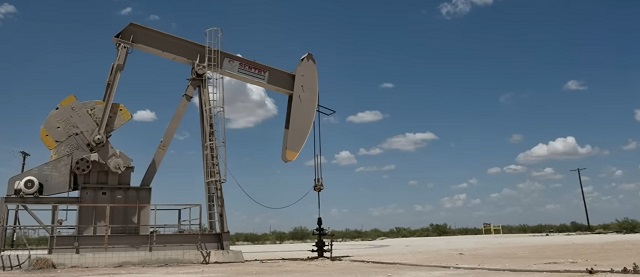Daily Caller
The Silly Peak Oil Debate Rages On

From the Daily Caller News Foundation
“What the Outlook underscores is that the fantasy of phasing out oil and gas bears no relation to fact,” said OPEC Secretary General Haitham Al Ghais
Analysts and professionals in the global energy space have long debated the prospects for reaching peak demand for crude oil. It is an issue that has long sparked debate, some of which becomes emotional among highly invested stakeholders on one side or the other.
In recent years, such stakeholders risk developing cases of whiplash when considering the competing perspectives about this “peak oil” matter published by OPEC and the International Energy Agency (IEA).
IEA has spent the last 12 months predicting an earlier advent of the peak oil phenomenon than pretty much any other experts envision, saying it will come about sometime in this decade, no later than 2030. Not surprisingly, the agency’s analysts doubled down on that projection in its most recent monthly Oil Market Report.
In a section titled “When the Music Stops,” the IEA focused on short-term factors like slowing demand growth in China, where oil consumption has declined year-over-year for the past four months. Noting that Chinese demand growth has slowed to an estimated 180,000 barrels per day (bpd) across 2024, the agency leaned on that data point as a reason to lower its estimated global demand growth to 800,000 bpd.
The same section also pointed to the isolated slowing of U.S. gasoline-deliveries growth in June — a factoid that could simply be statistical noise — as support for its annual growth forecast. But a slowdown in crude demand growth is no surprise, given that economic growth has been slowing throughout 2024. This direct cause-and-effect phenomenon has been a consistent aspect of oil markets across history. It is also a short-term factor whose impact will ultimately be diminished by subsequent events.
In contrast, OPEC’s projections over the past year regarding near-term global demand growth and the anticipated peak in oil demand have reached diametrically opposite conclusions. Last summer, the cartel projected global growth in crude demand for 2024 would be a robust 2.25 million bpd. Slowing economic growth has led OPEC’s analysts to lower that initial prediction over the past two months, but only to 2.1 million bpd — more than double that of both IEA and the U.S. Energy Information Administration (EIA).
Where the concept of peak oil demand is concerned, OPEC has held to an even more oil-bullish stance, stating its projections do not see that threshold being reached anytime during its projection timeframe through 2050. In its annual Global Outlook published last week, OPEC sees oil demand growing by that year to 120 million bpd, a rise of 18 million bpd from current levels.
“What the Outlook underscores is that the fantasy of phasing out oil and gas bears no relation to fact,” said OPEC Secretary General Haitham Al Ghais in the forward to the report.
Al Ghais also pointed out the fact that: “Over the past year, there has been further recognition that the world can only phase in new energy sources at scale when they are genuinely ready, economically competitive, acceptable to consumers and with the right infrastructure in place.” This undeniable reality means that projections of oil demand in the transportation sector being crushed by alternatives like EVs and hydrogen cars are almost certainly overly optimistic. The rapidly faltering market demand for EVs strongly supports that likelihood.
Al Ghais also contends that a “realistic view of demand growth expectations necessitates adequate investments in oil and gas, today, tomorrow, and for many decades into the future.” That contention stands in contrast to the IEA report released in May, 2021, in which IEA Director Fatih Birol urged an immediate halt in all new investments in the finding and development of new oil resources in order to fight climate change. By August of that year, Biral was comically urging oil companies to increase their oil production in order to help re-balance an undersupplied global market.
Episodes like that have led many to question whether IEA bases its projections related to oil markets on data or on wishful thinking. The validity of such questions was only reinforced when Birol announced early this year that the agency’s mission was being expanded into outright advocacy for promoting the energy transition.
So, who is right? We’ll find out in 2030, but the smart money is on the group with billions riding on the answer.
David Blackmon is an energy writer and consultant based in Texas. He spent 40 years in the oil and gas business, where he specialized in public policy and communications.
Censorship Industrial Complex
School Cannot Force Students To Use Preferred Pronouns, US Federal Court Rules


From the Daily Caller News Foundation
“Our system forbids public schools from becoming ‘enclaves of totalitarianism.’”
A federal appeals court in Ohio ruled Thursday that students cannot be forced to use preferred pronouns in school.
Defending Education (DE) filed the suit against Olentangy Local School District (OLSD) in 2023, arguing the district’s anti-harassment policy that requires students to use the “preferred pronouns” of others violates students’ First Amendment rights by “compelling students to affirm beliefs about sex and gender that are contrary to their own deeply held beliefs.” Although a lower court attempted to shoot down the challenge, the appeals court ruled in a 10-7 decision that the school cannot “wield their authority to compel speech or demand silence from citizens who disagree with the regulators’ politically controversial preferred new form of grammar.”
Because the school considers transgender students to be a protected class, students who violated the anti-harassment policy by referring to such students by their biological sex risked punishments such as suspension and expulsion, according to DE.
Dear Readers:
As a nonprofit, we are dependent on the generosity of our readers.
Please consider making a small donation of any amount here.
Thank you!
“American history and tradition uphold the majority’s decision to strike down the school’s pronoun policy,” the court wrote in its opinion. “Over hundreds of years, grammar has developed in America without governmental interference. Consistent with our historical tradition and our cherished First Amendment, the pronoun debate must be won through individual persuasion, not government coercion. Our system forbids public schools from becoming ‘enclaves of totalitarianism.’”
OLSD did not respond to the Daily Caller News Foundation’s request for comment.
“We are deeply gratified by the Sixth Circuit’s intensive analysis not only of our case but the state of student First Amendment rights in the modern era,” Nicole Neily, founder and president of DE, said in a statement. “The court’s decision – and its many concurrences – articulate the importance of free speech, the limits and perils of public schools claiming to act in loco parentis, and the critical role of persuasion – rather than coercion – in America’s public square.”
“Despite its ham-fisted attempt to moot the case, Olentangy School District was sternly reminded by the 6th circuit en banc court that it cannot force students to express a viewpoint on gender identity with which they disagree, nor extend its reach beyond the schoolhouse threshold into matters better suited to an exercise of parental authority,” Sarah Parshall Perry, vice president and legal fellow at DE, said in a statement. “A resounding victory for student speech and parental rights was long overdue for families in the school district and we are thrilled the court’s ruling will benefit others seeking to vindicate their rights in the classroom and beyond.”
Business
Bill Gates Gets Mugged By Reality


From the Daily Caller News Foundation
You’ve probably heard by now the blockbuster news that Microsoft founder Bill Gates, one of the richest people to ever walk the planet, has had a change of heart on climate change.
For several decades Gates poured billions of dollars into the climate industrial complex.
Some conservatives have sniffed that Bill Gates has shifted his position on climate change because he and Microsoft have invested heavily in energy intensive data centers.
AI and robotics will triple our electric power needs over the next 15 years. And you can’t get that from windmills.
What Bill Gates has done is courageous and praiseworthy. It’s not many people of his stature that will admit that they were wrong. Al Gore certainly hasn’t. My wife says I never do.
Although I’ve only once met Bill Gates, I’ve read his latest statements on global warming. He still endorses the need for communal action (which won’t work), but he has sensibly disassociated himself from the increasingly radical and economically destructive dictates from the green movement. For that, the left has tossed him out of their tent as a “traitor.”
I wish to highlight several critical insights that should be the starting point for constructive debate that every clear-minded thinker on either side of the issue should embrace.
(1) It’s time to put human welfare at the center of our climate policies. This includes improving agriculture and health in poor countries.
(2) Countries should be encouraged to grow their economies even if that means a reliance on fossil fuels like natural gas. Economic growth is essential to human progress.
(3) Although climate change will hurt poor people, for the vast majority of them it will not be the only or even the biggest threat to their lives and welfare. The biggest problems are poverty and disease.
I would add to these wise declarations two inconvenient truths: First: the solution to changing temperatures and weather patterns is technological progress. A far fewer percentage of people die of severe weather events today than 50 or 100 or 1,000 years ago.
Second, energy is the master resource and to deny people reliable and affordable energy is to keep them poor and vulnerable – and this is inhumane.
If Bill Gates were to start directing even a small fraction of his foundation funds to ensuring everyone on the planet has access to electric power and safe drinking water, it would do more for humanity than all of the hundreds of billions that governments and foundations have devoted to climate programs that have failed to change the globe’s temperature.
Stephen Moore is a co-founder of Unleash Prosperity and a former Trump senior economic advisor.
-

 espionage2 days ago
espionage2 days agoU.S. Charges Three More Chinese Scholars in Wuhan Bio-Smuggling Case, Citing Pattern of Foreign Exploitation in American Research Labs
-

 Business23 hours ago
Business23 hours agoCarney’s Deficit Numbers Deserve Scrutiny After Trudeau’s Forecasting Failures
-

 Business2 days ago
Business2 days agoU.S. Supreme Court frosty on Trump’s tariff power as world watches
-

 Business1 day ago
Business1 day agoHere’s what pundits and analysts get wrong about the Carney government’s first budget
-

 International22 hours ago
International22 hours agoKazakhstan joins Abraham Accords, Trump says more nations lining up for peace
-

 Daily Caller2 days ago
Daily Caller2 days agoUN Chief Rages Against Dying Of Climate Alarm Light
-

 Business1 day ago
Business1 day agoCarney budget doubles down on Trudeau-era policies
-

 Automotive22 hours ago
Automotive22 hours agoElon Musk Poised To Become World’s First Trillionaire After Shareholder Vote



